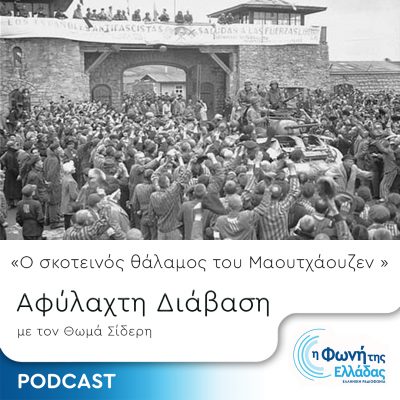Episode 2: The Dark Room of Mauthausen
Yona was the eldest of four children born to a working-class Jewish family. The family lived in the Jewish quarter of Pabianice. Yona’s father sold merchandise to Polish shops. When the Poles could not pay him for his goods, they would give him food for his family. It was a difficult life in Pabianice, but Yona’s family was very close, and many relatives lived nearby.
After war began in September 1939, the Germans set up a ghetto in Pabianice in our neighborhood. The whole family was forced to move to the ghetto. We suffered because there wasn’t enough food. Every week the Gestapo came and confiscated our valuables. Then they began seizing people – every few weeks they took people either for work or to concentration camps. We never knew if we would see each other again at the end of the day.
Yona recalls:
“In May 1942 the Pabianice ghetto was emptied. My sister, father, and I were deported to the Lodz ghetto. I was 12 years old and was sent to work in a factory with my sister. For two years we sewed clothes, hiding when the Germans began deporting Jews from Lodz. In August 1944, we were deported to Auschwitz, where we faced “selection.” My sister was sent to the gas chamber. I was sent to work in an airplane factory in Germany. When the Americans began bombing, we were put on trains for the Mauthausen camp.”
After surviving for 10 days with little food and no water, Yona was liberated in Mauthausen by the US army. After the war, she was joined an uncle in Israel and eventually settled in America.
___
14 radio-documentaries about the Holocaust. Oral testimonies and narratives, diaries, handwritten notes. The anthropogeography of the Holocaust, through the traces of space and people.
Research-documentation-presentation: Thomas Sideris
Broadcast: Friday 8 December 2023, 13.00-14.00
